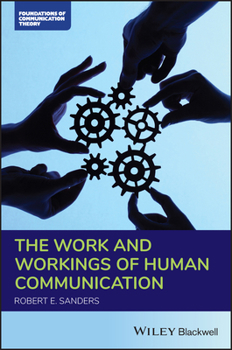The Work and Workings of Human Communication
Discover the fundamentals of human communication with this comprehensive and insightful resource
Written in four sections, The Work and Workings of Human Communication identifies the underlying fundamentals that make our communication distinctively human. These fundamentals are the common ground that tie together the many topics and subject matters covered by the study and discipline of communication. They are also the basis of the unique contribution of the communication discipline to the social sciences.
Professor, researcher and theorist Robert E. Sanders starts by focusing on what is unique about human communication and moves on to an examination of the complexities of scientific inquiry in the social sciences in general and in the communication discipline specifically. At the heart of the matter is the fact that humans are thinking beings who can make choices and therefore are not entirely predictable. This points towards new topics and questions that are likely to arise as the discipline evolves.
Sanders' approach leads to recognition of the fact that communication is at the center of how humans build our ways of life and participate together. By focusing on the underlying fundamentals that give rise to the discipline's topics and subject areas, The Work and Workings of Human Communication encourages students to engage in independent thought about what they want to contribute by:
Emphasizing the importance of communication in creating, sustaining or changing--and participating in--our ways of life on an interpersonal level and on a societal level Recognizing that human communication is inherently collaborative; people affect situations by interacting with others, not acting on others Explaining the history, current agendas and possible future of the social science side of the Communication disciplineA perfect resource for new graduate students in introductory communication courses who have an interest in the social science side of the discipline, The Work and Workings of Human Communication is also highly valuable for undergraduate communication and liberal arts students who don't possess a background in the discipline.
Related Subjects
Language Arts




